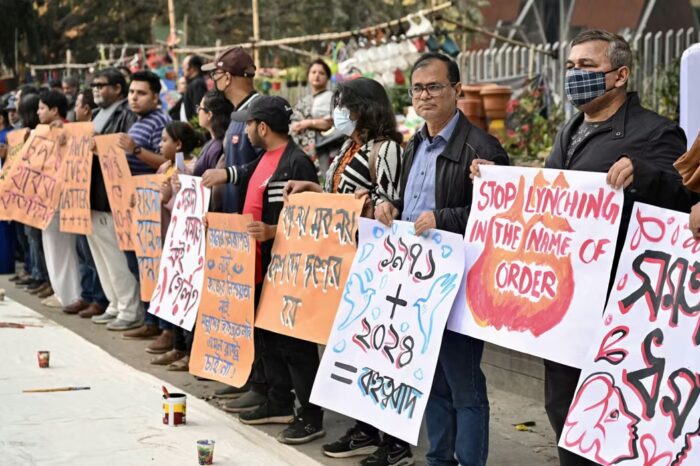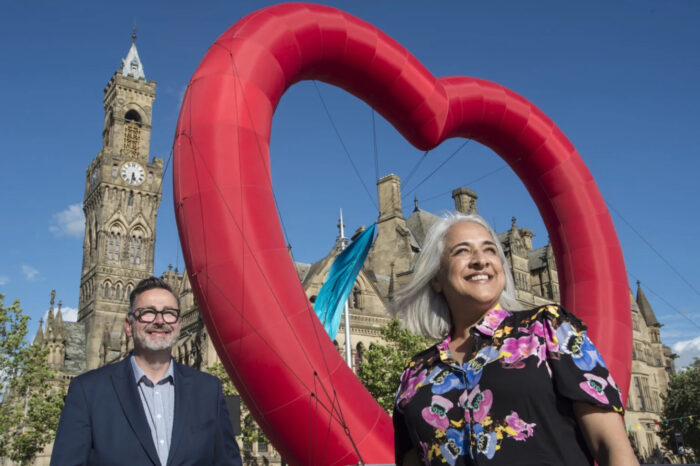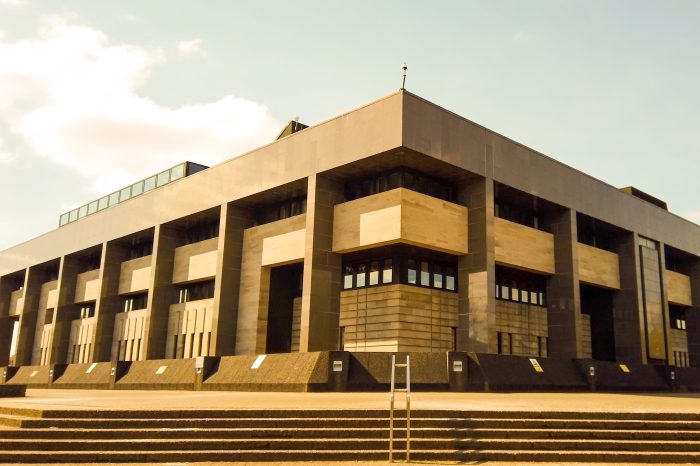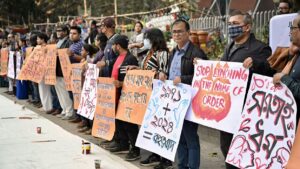
Representational image courtesy Desi Blitz
The recent case of 20-year-old Bradford student Somaiya Begum, who was being forced to marry against her will, and subsequently murdered by her own uncle, is a horrific reminder of the state of British Asian women in this country.
Begum refused to marry a man in Pakistan which prompted Mohammed Taroos Khan, 53, her abusive uncle, to take such an extreme step.
The Leeds Beckett University student, who had been living with her grandmother and another uncle was last seen alive on CCTV footage which showed her walking towards her home in Binnie Street, Bradford in the early hours of June 25, 2022. It was reported that she had returned to working as a part-time carer.
Khan, who had a restraining order against him after threatening his own daughter with a knife, was not allowed to enter Begum’s home as his daughter used to live there previously. However, he entered the house regardless and killed the young woman in a violent attack. Her body was found partially decomposed in a waste ground 11 days later.
After his conviction, footage of Khan arriving at Fitzwilliam Street, an industrial street on the outskirts of Bradford city centre, to dump Somaiya Begum’s body was released. He went to the area at 6.46pm on Sunday, 26 June and had kept her body hidden in a shipping container before disposing it off.
Begum had gone to the police to report that her father had promised her to a suitor he had found for her in Pakistan at the age of 16.
According to statistics posted by the UK government in October, 2022: “Of the 2,887 honour based abuse (HBA) offences recorded by police forces in England and Wales in the year ending March 2022, there were 77 female genital mutilation (FGM) and 141 forced marriage offences.”
The report added, “In the year ending March 2022, 17 per cent of HBA-related offences were for controlling and coercive behaviour, 14 per cent for assault with injury and 14 per cent for assault without injury.”
However, what is to be noted here is that these figures are based only on the offences that were reported to and recorded by the police. The report states: “It is recognised that HBA is a hidden crime and victims can be reluctant to bring them to the attention of police or other authorities. These data, therefore, are likely to only represent a small proportion of the actual HBA offences committed in year ending March 2022.”
Despite being a developed, highly educated and progressive nation, it is unfortunate that even such an exposure has not been able to change certain people’s conservative minds as several women continue to suffer similar or the same ordeal as Begum, whose father had promised her to a man in Pakistan when she was just 16.
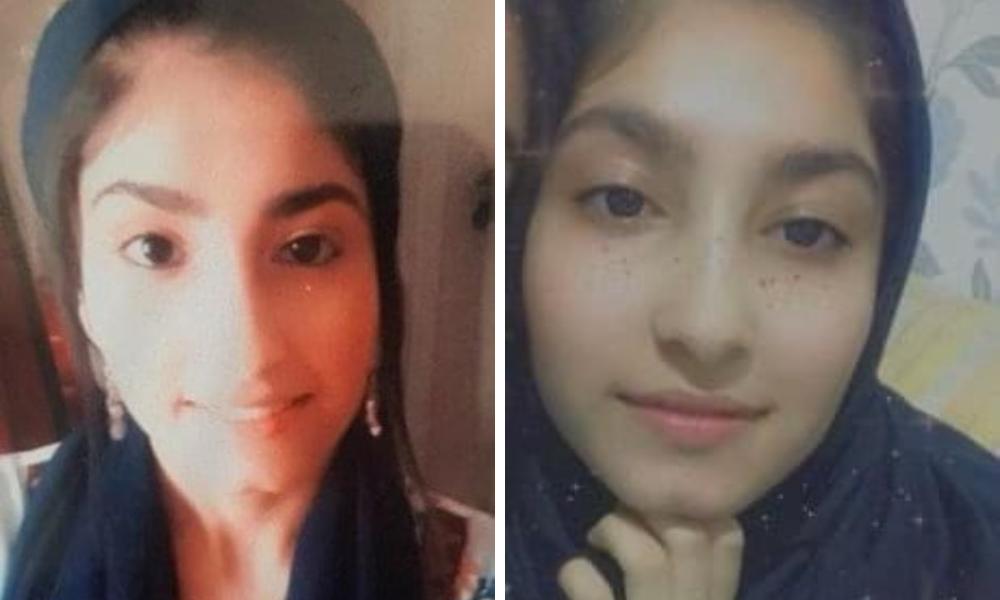
Somaiya Begum was brutally murdered by her uncle in June 2022
The Crown Prosecution Service defines honour based abuse as “an incident or crime involving violence, threats of violence, intimidation, coercion or abuse (including psychological, physical, sexual, financial or emotional abuse) which has or may have been committed to protect or defend the honour of an individual, family and/or community for alleged or perceived breaches of the family and/or community’s code of behaviour.”
Deemed to have brought shame to the family and the community in one way or another, these vulnerable women suffer abuse and violence at the hands of their closed ones who completely betray their sense of safety and trust. Needless to say, these women are barely able to find a way out of danger and be free, because on the surface, everything appears to be normal.
The first ever honour based killing to have been widely reported in the UK was in 2002, when 16-year-old Heshu Yones had her throat slit by her strict Muslim Kurdish father, Abdalla Yones in west London. He believed that his daughter was ‘too westernised’ and was furious when he came to know that she was in a relationship with a Lebanese Christian boy who was two years older than her.
In the Asian community, honour based violence and abuse occur in high numbers, almost at par with the Iraqi Kurdish community. Bradford born girl Shafilea Ahmed was murdered by her parents at the age of 17 after she refused to marry a man they had found for her during a trip to Pakistan in 2003. They also believed that she had become too westernised and abused her for the same, leading to her leaving the home several times and attempting suicide.
In 2005, Samaira Nazir, a 25-year-old woman was killed by her brother and a cousin in Southall, London after she refused to agree to an arranged marriage and rejected all the suitors from Pakistan her father had selected for her.
In 2016, a British Pakistani woman, Samia Shahid, was killed by her family in Pakistan as they allegedly disapproved of her second marriage, after she divorced her cousin with whom she had had an arranged marriage. She then converted from Sunni to the Shia branch of Islam upon her marriage to her second husband. Shahid visited Pakistan after being told that her father was critically ill, but it turned out to be untrue and was just a ploy masterminded by her relatives to lure her into her own death.
Over the years, many such incidents have come to light with the most common reason behind honour based killings being refusal of forced marriages, women seeking divorce from their abusive husbands, or their families claiming that they became very ‘westernised’. Despite some media attention on these crimes taking place in the UK over the years, many instances of honour based abuse and violence still go unreported.
Savera UK CEO and founder, Afrah Qassim, told the Liverpool ECHO, “Honour’ based abuse and harmful practices in the UK are so hidden that many feel ‘it can’t happen here’. The additional challenge of having limited data adds to this misconception, making it difficult to recognise the scale of these practices. In reality, they continue to take place across the UK and right here in Merseyside and Cheshire.

Shafilea Ahmed was murdered by her parents at the age of 17 for becoming too ‘westernised’
“Tragically, it’s often only when the most serious cases come to light that the public is starkly reminded of the life-threatening dangers for those at risk. One case which serves as a constant reminder of the prevalence of these issues, is the death of Warrington teenager Shafilea Ahmed.”
Many would wonder the reason behind such crimes continuing to occur in the UK, despite a seemingly strong police force and governance. A recent damning report reviewing the workings of the Metropolitan Police by Baroness Louise Casey extensively detailed how the organisation is still riddled with racism, bias and bullying within and without. This not only highlights that bad policing has existed in London for years, but also puts focus on police departments across the country where similar practices have likely occurred but not been focused on yet.
The consequences of such a dwindling police structure are dire, especially for vulnerable women who are constantly being threatened and abused by their own conservative families and community members. The lack of diversity, empathy and training in the police force also means that officers do not understand what these women are going through. A report published by The Guardian clearly attests to this, stating, “Despite positive changes, there is no systematic understanding of such crimes across forces, social services and schools.”
For example, in the case of 20-year-old Iraqi Kurdish woman Banaz Mahmood, the police had failed to conduct a thorough investigation into her abusive husband and family despite her repeated attempts to report them and telling the investigators that she overheard the men in her family who were conspiring to kill her because of her affair with another man. It was only after she was brutally raped and murdered by three of her cousins who buried her under the ground in a suitcase, that the police stepped up their efforts to bring her justice… something they could have done before and saved her precious life.
With cases like these, the police force coming forth as more untrustworthy than ever is very concerning as women suffering abuse find it more difficult to approach them and be taken seriously. Additionally, according to a report published by The Henry Jackson Society a UK based think tank, the local governments have also failed in protecting these women as authorities are reluctant to get involved in “minority” issues. They do not want to raise issues about forced marriages and HBA at schools as they fear that they will upset the parents.
Apart from ensuring a better policing structure and proactive governance on the local and national levels, what else can be done to eliminate such crimes for good? According to an article by Forbes, “The hindrances in eliminating HBV (Honour Based Violence) are twofold. The first is a lack of accurate statistics to understand the scale of the problem. The second is a lack of successful prosecutions – in fact, those responsible for HBV often escape justice by fleeing to countries outside of the UK, thus avoiding extradition for their crimes.”
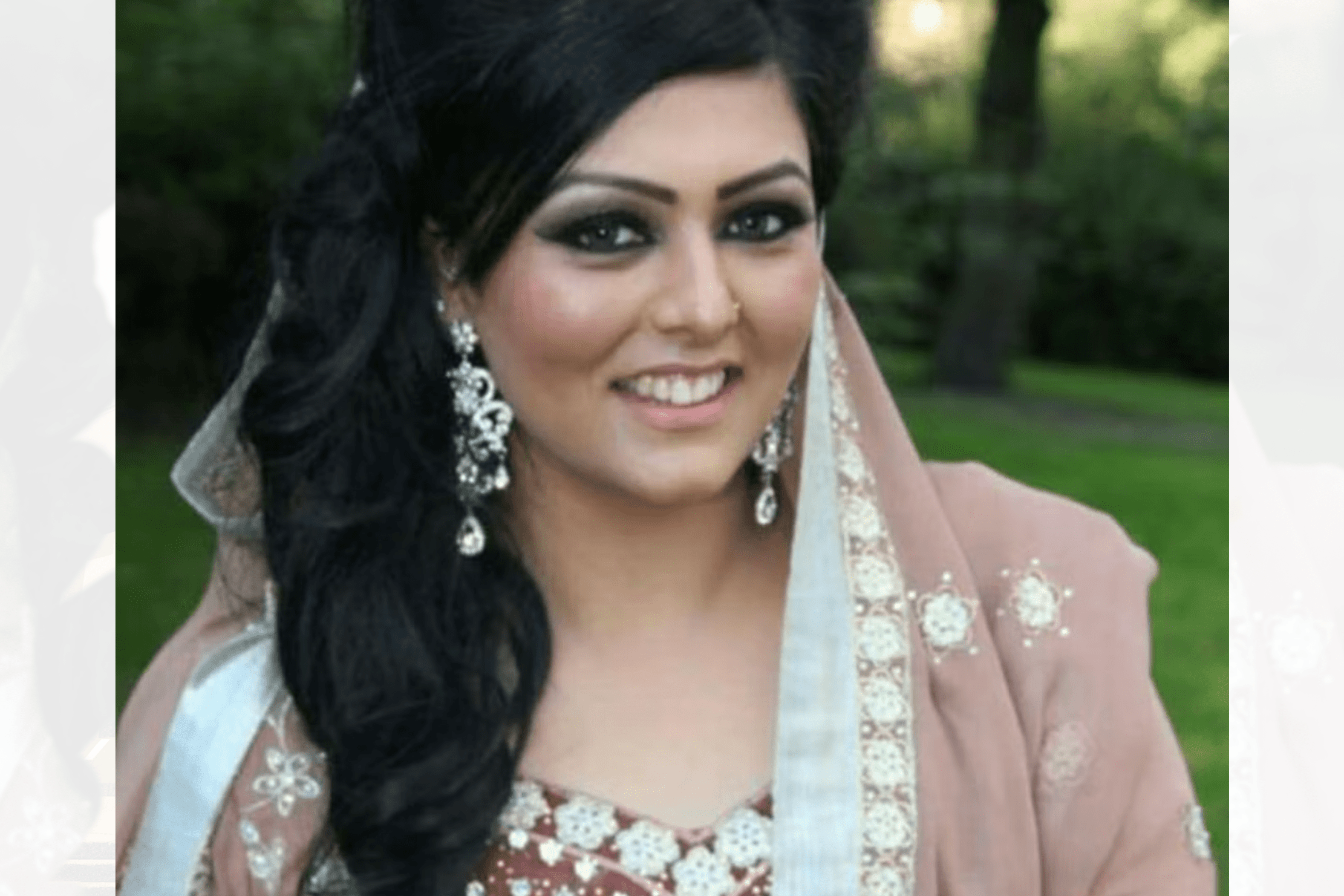
28-year-old Samia Shahid was killed by her family after they gave her false news about her father’s illness
It adds, “In order to work towards ending HBV, therefore, the British government must focus on regularly publishing statistics on the extent of the crime, ensure that victims are given widespread support, and stress that victim testimonies are taken seriously. Perpetrators of HBV must not be allowed to simply flee from the country and avoid prosecution.”
With many women in the Asian community still in grave danger of being chastised by their families and societies for speaking out against abuse or making decisions they do not approve of, it is imperative that this issue is looked at with a magnifying lens; to actively find and safeguard women silently suffering as well as finding foolproof methods to help them not just find safety physically, but also mentally and emotionally. This will only be successful when the government, the police and the British society as a whole come together on behalf of these women and commit towards bringing about some real change.
If you or any one that you know is facing abuse and violence at the hands of your family or relatives, you can seek help from the following organisations based in the UK:
- Karma Nirvana- A specialist charity for victims and survivors of honour-based abuse in the UK. They also have a UK Helpline, Monday to Friday, 9am to 5pm: 0800 5999 247
- The Halo Project- A national project that supports victims of honour-based violence, forced marriages and FGM by providing advice and support to victims. They have a live chat service and a victim support helpline: 01642 683 045
- Refuge- A charity helping victims rebuild their lives and overcome different forms of violence and abuse. They also have a 24-hour helpline: 0808 2000 247
- Runaway Helpline- Advice and support for people who are thinking about running away or if they’ve already run away. Free helpline: 116 000
- Savera UK- An organization tackling ‘honour’-based abuse and harmful practices across the UK. Their helpline number is 0800 107 0726
- You can also contact your local police by dialing 999 if it is an emergency or 101 if you don’t think there is an immediate threat and would like to report incidents of abuse or violence.

